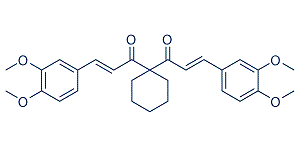According to the data from US center of disease control, the prevalence of asthma increased from 7.3% to 8.4% in the US over the first 10 years of this century, and it affected 235 million people worldwide in 2011 with an increasing prevalence. This situation leads to a considerable economic burden in both direct and indirect medical costs. It has been suggested that there may be an additional 100 million people who may suffer from asthma by 2025. Therefore, identifying potential protective or risk factors of asthma is of great public health significance. Since the laboratory studies suggest that asthma is an inflammatory process, it has been hypothesized that high intake of long-chain n-3 polyunsaturated fatty acids may be beneficial to preventing asthma. In the past decades, a number of epidemiological studies have examined the association between the intake of fish or LCn3PUFAs and the risk of asthma. However, the findings from these studies were inconsistent. Two cohort studies that recruited 3,595 and 3,086 participants, respectively, found that people who ate fish more than once per week had their risk of asthma lowered significantly by 6% to 45% as compared with non-consumers. Another cohort study reported a 16% risk reduction in fish consumers compared with non-consumers, though it was statistically non-significant. One case-control study found a non-significant risk reduction comparing the highest fish consumption group with the lowest, while one cross-sectional study found fish consumption was positively associated with the risk of asthma when comparing AbMole Tulathromycin B participants who consumed fish 1�C2 servings/week with those who consumed 1�C2 servings/month. A few randomized clinical trials have been published. One trial reported beneficial effect of fish oil supplementation on asthma. To provide an integrated review and a reliable quantitative assessment of the association between the intake of fish and LCn3PUFAs and the risk of asthma, we conducted a systematic review and meta-analysis of prospective cohort studies as well as RCTs with the existing data. By pooling data from published prospective cohort studies on the association of fish consumption or LCn3PUFA intake/ biomarker and risk of asthma, we found that intake of fish or LCn3PUFAs was significantly inversely related to the risk of asthma in children based on the available literature. This inverse association was attenuated in adults. Laboratory studies suggested that LCn3PUFAs might have the ability to inhibit the production of prostaglandin E2, suppress T-helper 2 cell’s response to allergens _ENREF_6, and consequently modulate the intensity and  duration of inflammatory AbMole Cefetamet pivoxil HCl responses. Thus, it was hypothesized that the increased intake of LCn3PUFAs can reduce the risk of atopic diseases such as asthma.
duration of inflammatory AbMole Cefetamet pivoxil HCl responses. Thus, it was hypothesized that the increased intake of LCn3PUFAs can reduce the risk of atopic diseases such as asthma.